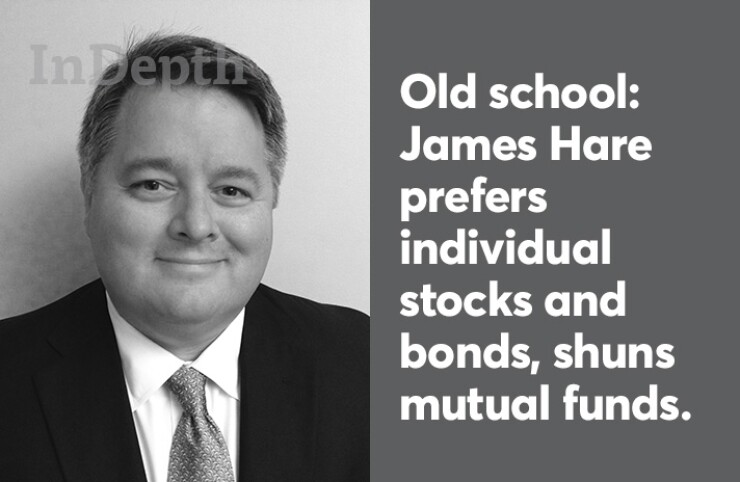As a student attending the University of Tennessee in the mid-1990s preparing for a career in medicine, becoming a financial advisor was the last thing on James Hare’s mind. Then a chance encounter while working at a hotel driving the airport shuttle van changed the trajectory of his career.
“There was a guy living at the hotel while his house was being built,” Hare says. “His family was back in Dallas, but he had moved to Knoxville to run an investment firm. It was Prudential Securities.”
The two struck up a friendship and that summer, the Prudential branch manager asked Hare to come work for him as a cashier — which isn’t a wealth management term that stood the test of time.
James Hare of Pinnacle Bank abandoned his plans of becoming a doctor to pursue a career in financial services.

But here’s a more classic industry term: senior vice president. That’s where Hare is now at Pinnacle Asset Management and Pinnacle Financial Partners in Nashville. His primary focus is managing the discretionary investment portfolios for high-net-worth families.
“I’m an old-school advisor with only a handful of clients,” he says. “I manage a portfolio of about $320 million for about 50 families.”
Hare has been part of the BIC Top 100, and its predecessor list the Top 50, for years. But this is the first time he’s topped the list at #1.
He describes his investment philosophy as “very simple,” noting he owns individual stocks and bonds and that he rarely purchases mutual funds or any sort of packaged product for a client’s account.
“I sort of view myself as the Warren Buffett of Nashville, in that I buy great companies and I hold on to them forever,” Hare says. “I choose only high-quality stocks of what I consider to be well established companies that produce reliable growth and consistent dividends.”
When the markets get dicey, Hare gives his best advice.
Typically, Hare’s client portfolios will be made up of 35 stocks, particularly those that are expected to increase their dividends every year.
“That’s why I call myself old school, I’m not a trader, I’m just a long-term investor,” Hare notes. “I believe you have to hold on to great companies for a long time to realize great returns.”
While Hare may swear by his approach, that doesn’t mean clients will be 100% on board when the markets get a little dicey. But that’s when Hare says he gives his best advice.
“Clients pay me to be that steady hand when things get a little rocky,” he says. “And that happens quite often, especially in the stock market. My advice to them has always been, ‘Hey, when things look sour, we’re going to be buyers.' I’ll start selling stocks when Warren Buffett starts selling stocks and that typically doesn’t happen. … Dollar-cost averaging into stocks over a long period of time is a very successful investment strategy.”
Full Top 100 coverage:
•
•
•
•
•
•
Over the course of Hare’s 20-year career he’s seen a lot changes in the industry, mostly through technological innovations, which is what made his first job — cashier — and others, obsolete.
“I sat beside the wire operator at Prudential Securities, a job that’s no longer a job,” he says. “Twenty years ago, most firms would not allow their advisors to put an order in by themselves. You had to actually take a ticket up to the wire operator and have the wire operator do it for you, because they didn’t trust the financial advisors to do it right. Technology really has advanced our industry for the good.”
Hare has other advice for rookie advisors: find a mentor.
“Latch on to a great advisor,” he says. “Someone they trust, someone that has the business they want in the future and learn as much as they can from that advisor. … I was fortunate enough to be around [great mentors] to learn the business and to emulate what they did.”





